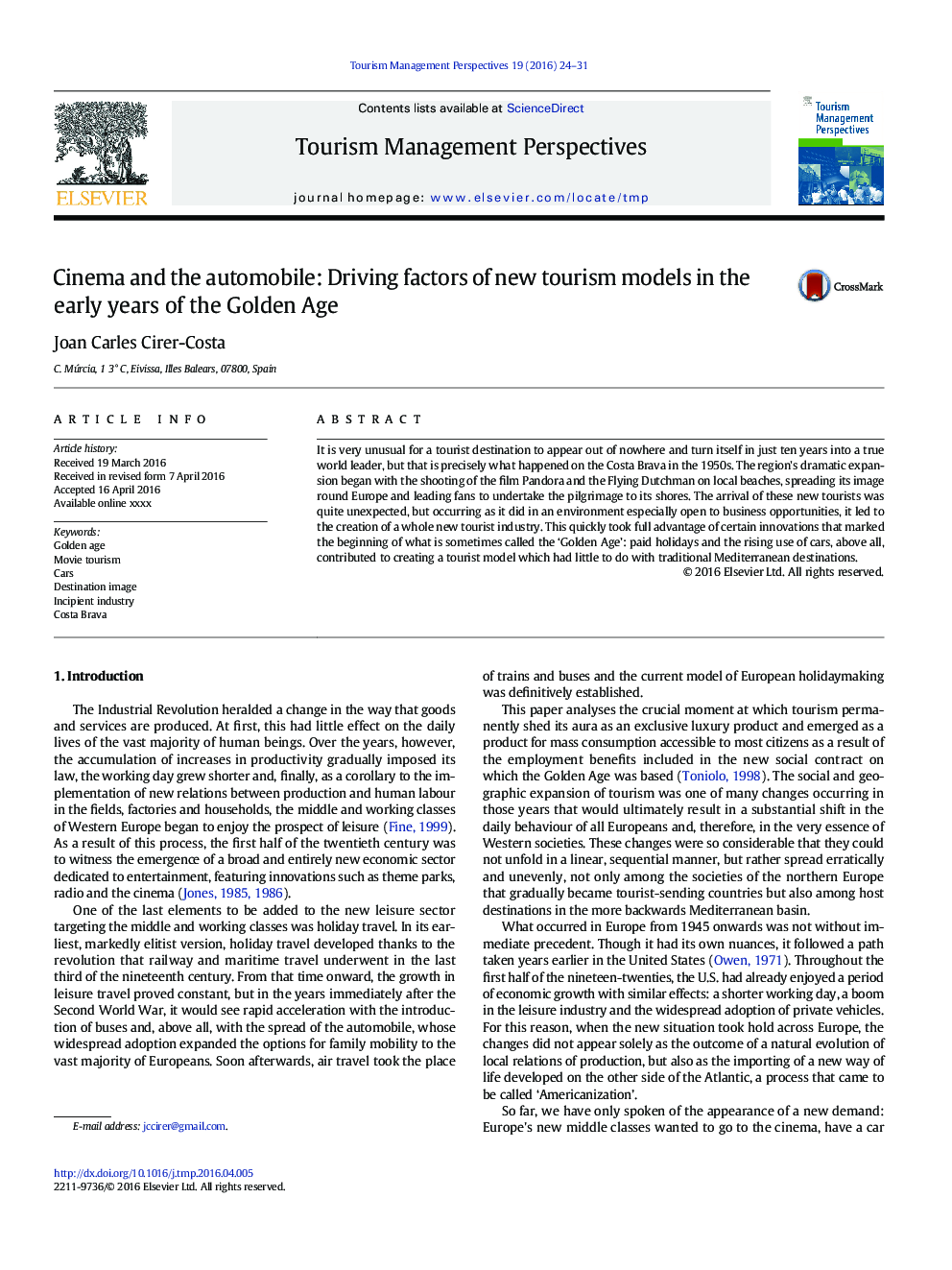| Article ID | Journal | Published Year | Pages | File Type |
|---|---|---|---|---|
| 10491078 | Tourism Management Perspectives | 2016 | 8 Pages |
Abstract
It is very unusual for a tourist destination to appear out of nowhere and turn itself in just ten years into a true world leader, but that is precisely what happened on the Costa Brava in the 1950s. The region's dramatic expansion began with the shooting of the film Pandora and the Flying Dutchman on local beaches, spreading its image round Europe and leading fans to undertake the pilgrimage to its shores. The arrival of these new tourists was quite unexpected, but occurring as it did in an environment especially open to business opportunities, it led to the creation of a whole new tourist industry. This quickly took full advantage of certain innovations that marked the beginning of what is sometimes called the 'Golden Age': paid holidays and the rising use of cars, above all, contributed to creating a tourist model which had little to do with traditional Mediterranean destinations.
Keywords
Related Topics
Social Sciences and Humanities
Business, Management and Accounting
Tourism, Leisure and Hospitality Management
Authors
Joan Carles Cirer-Costa,
